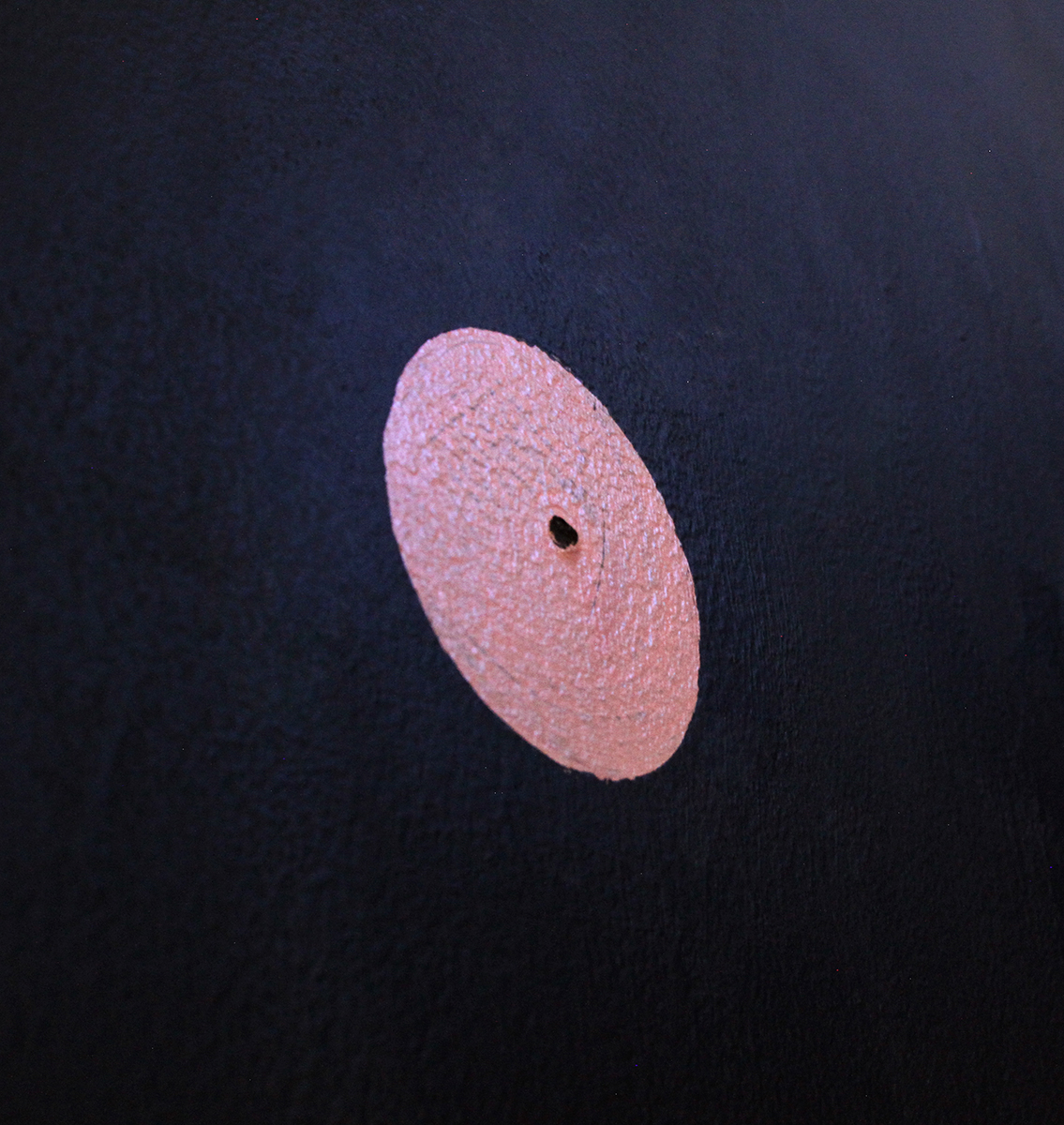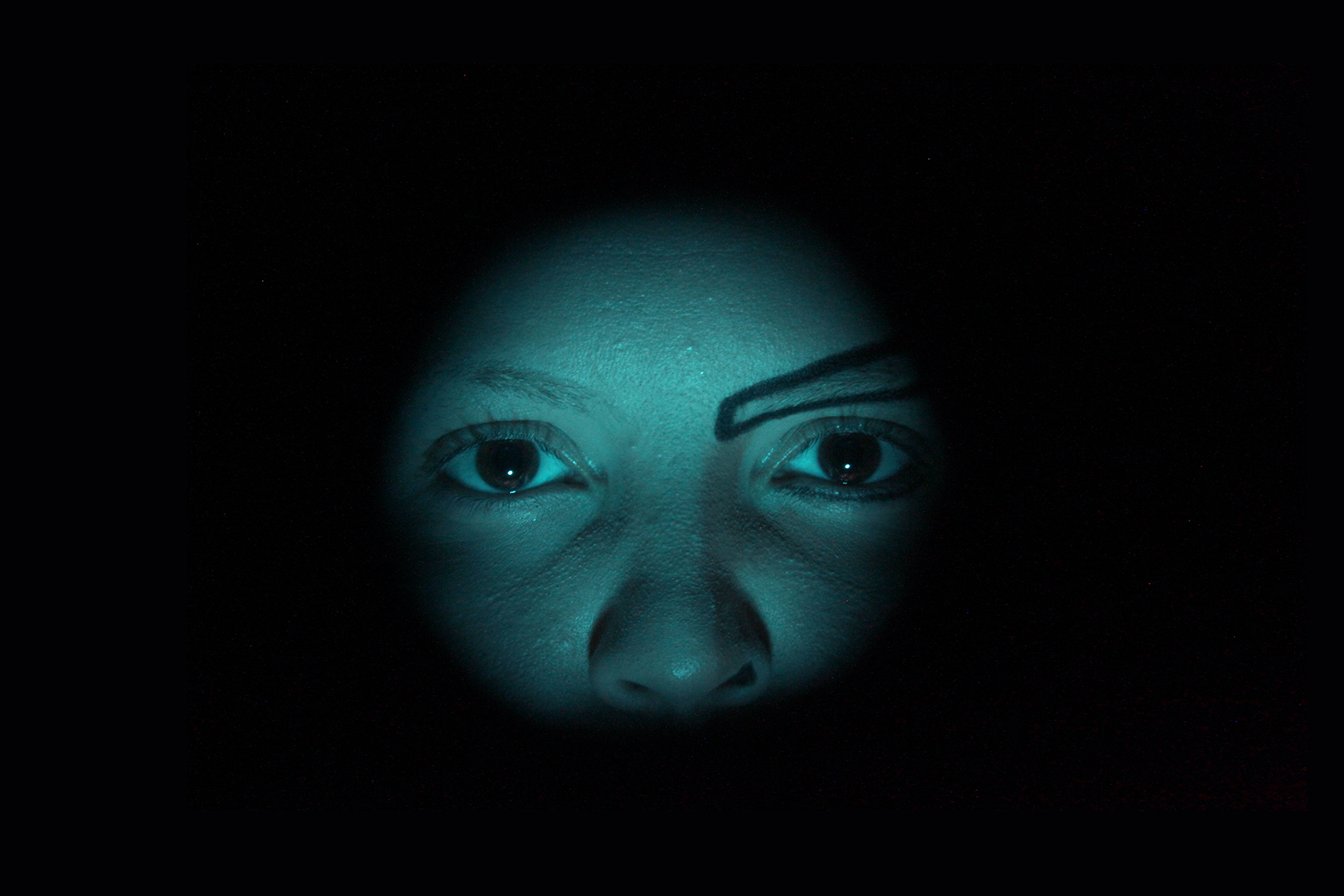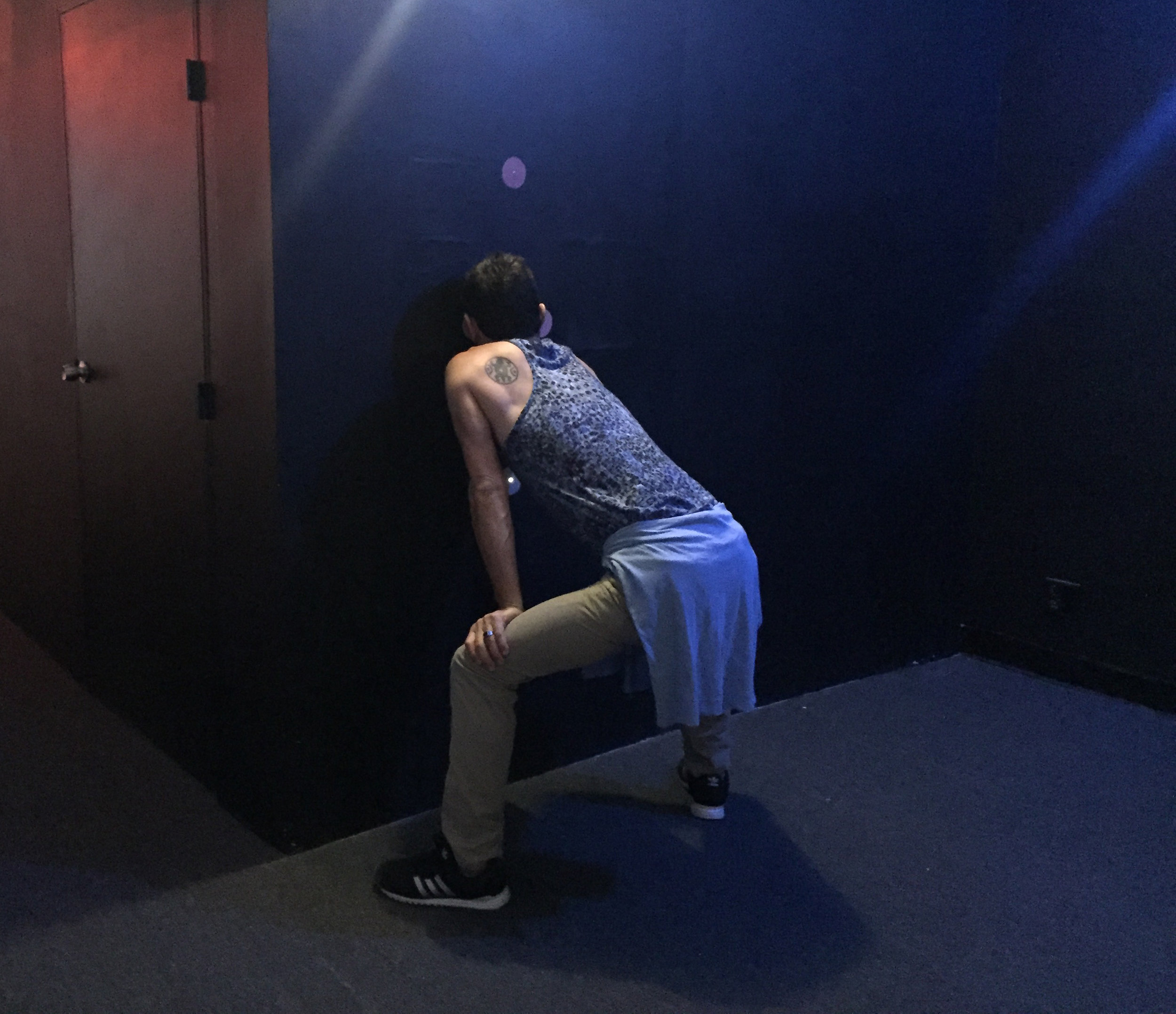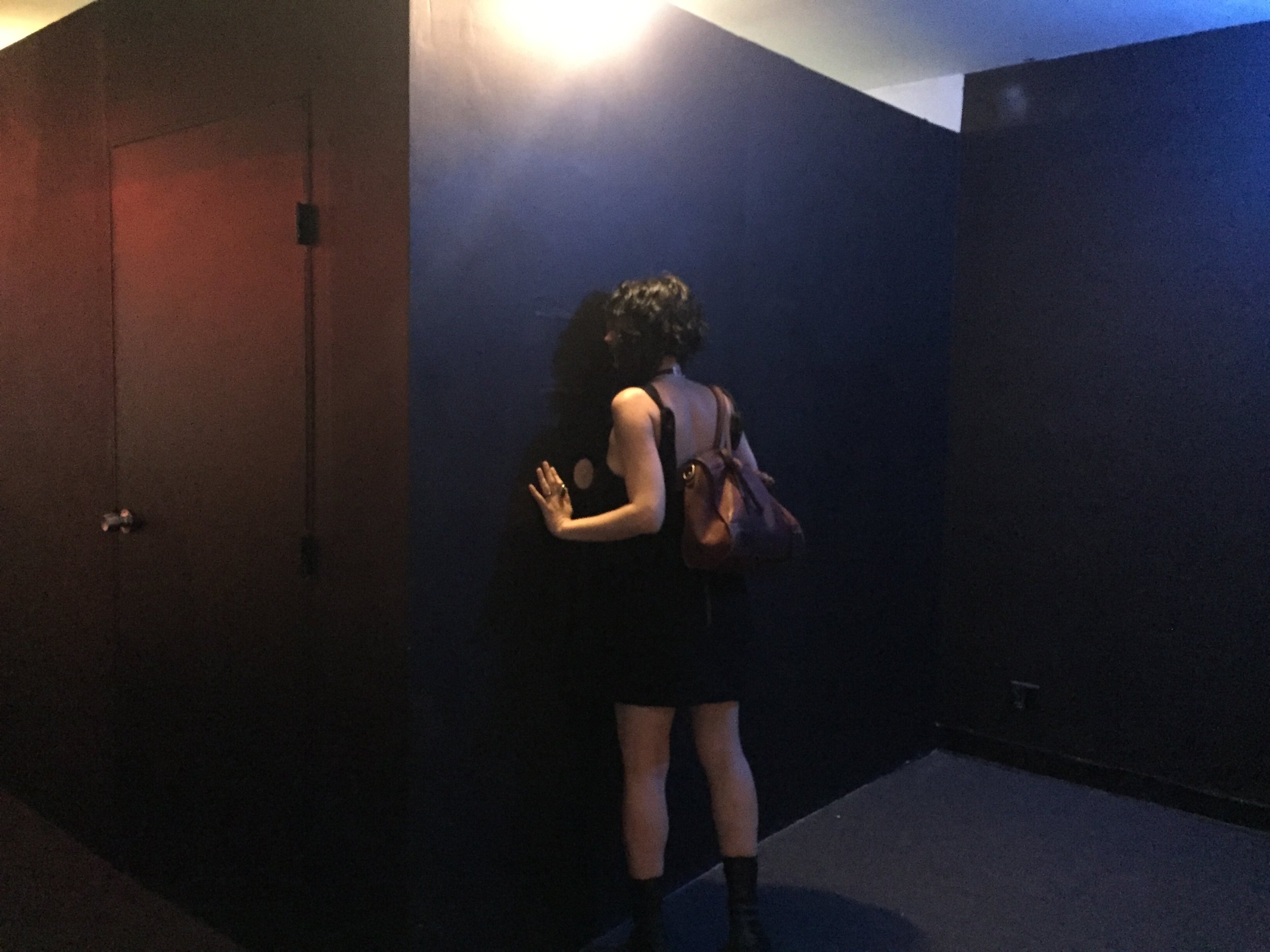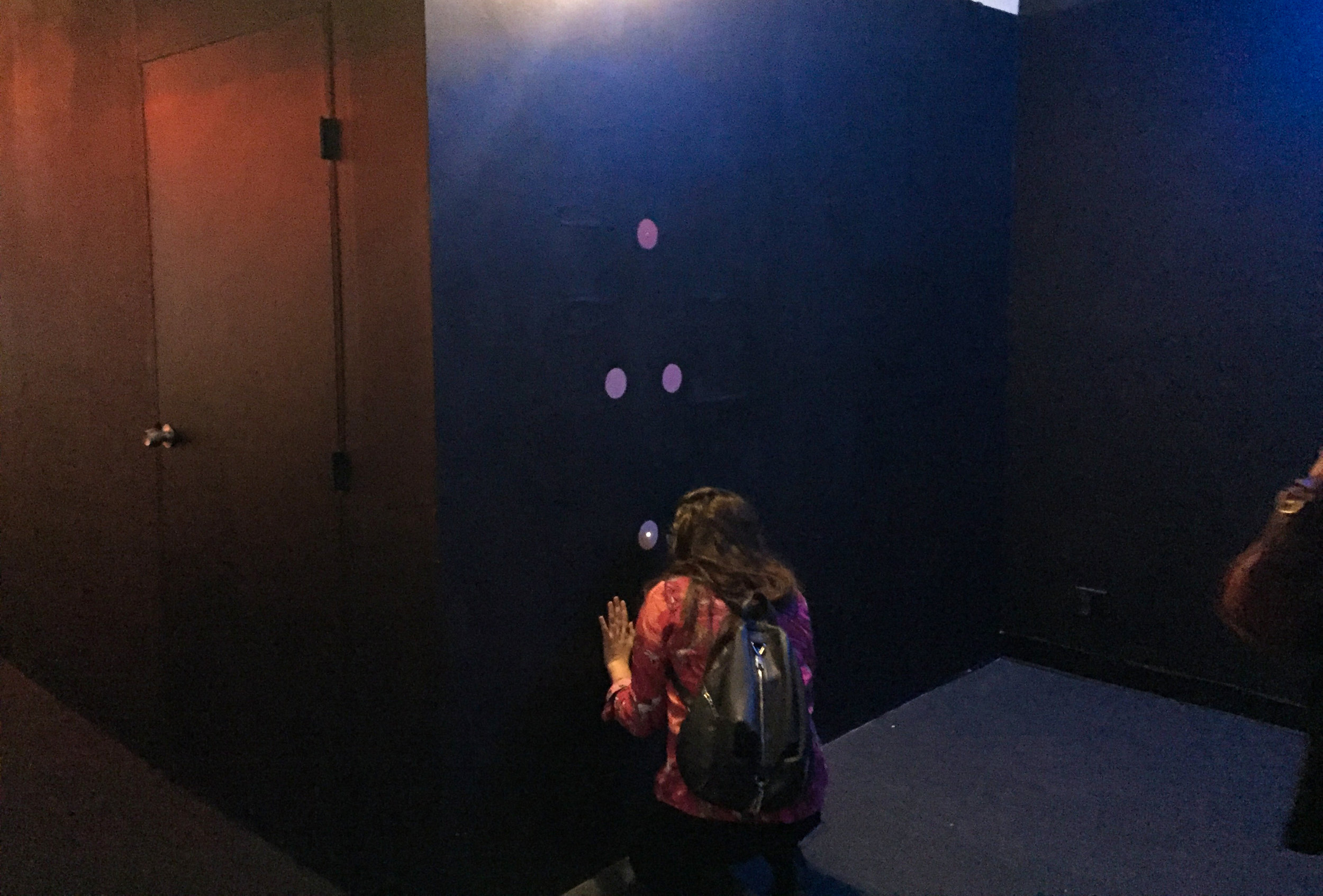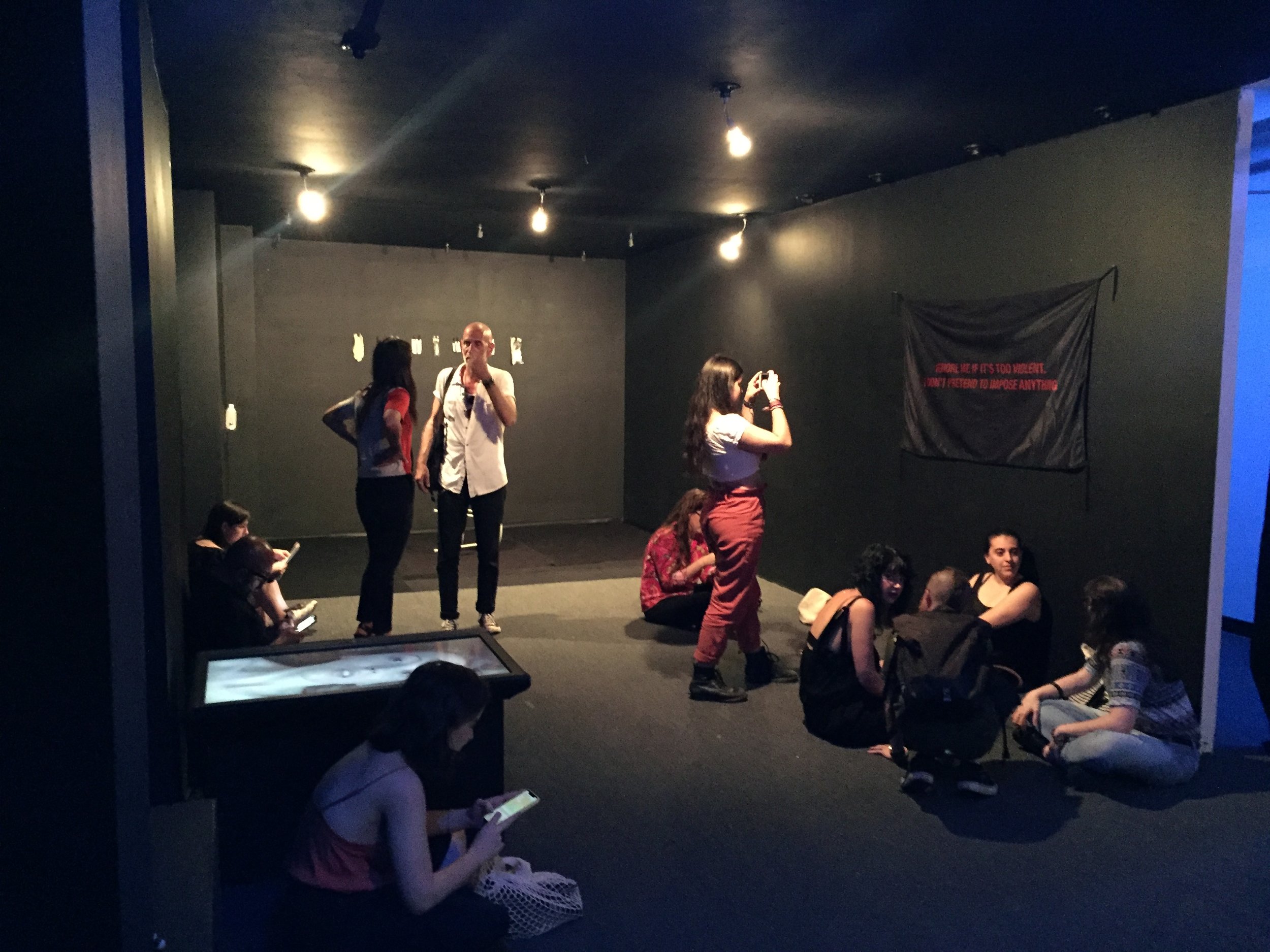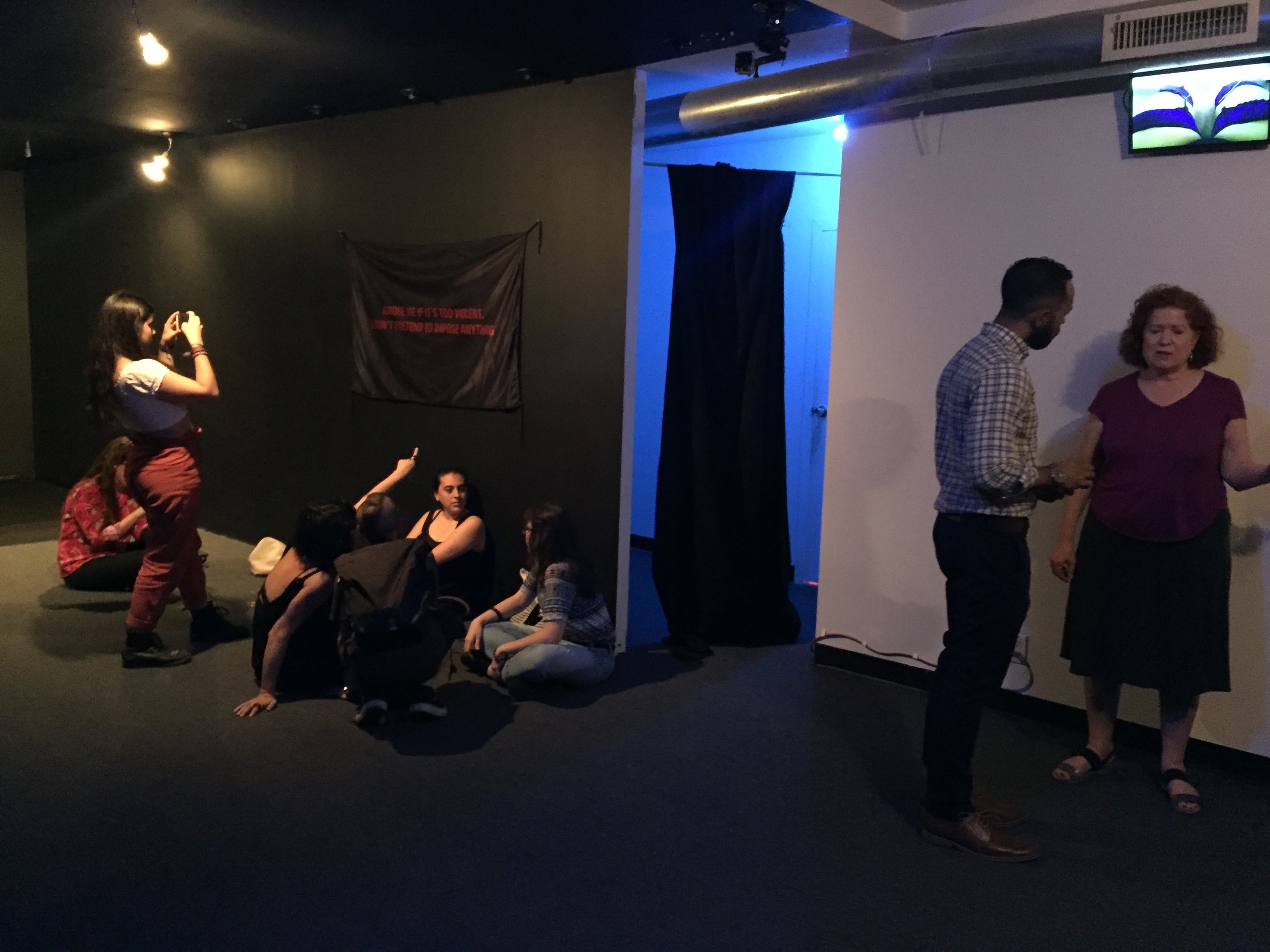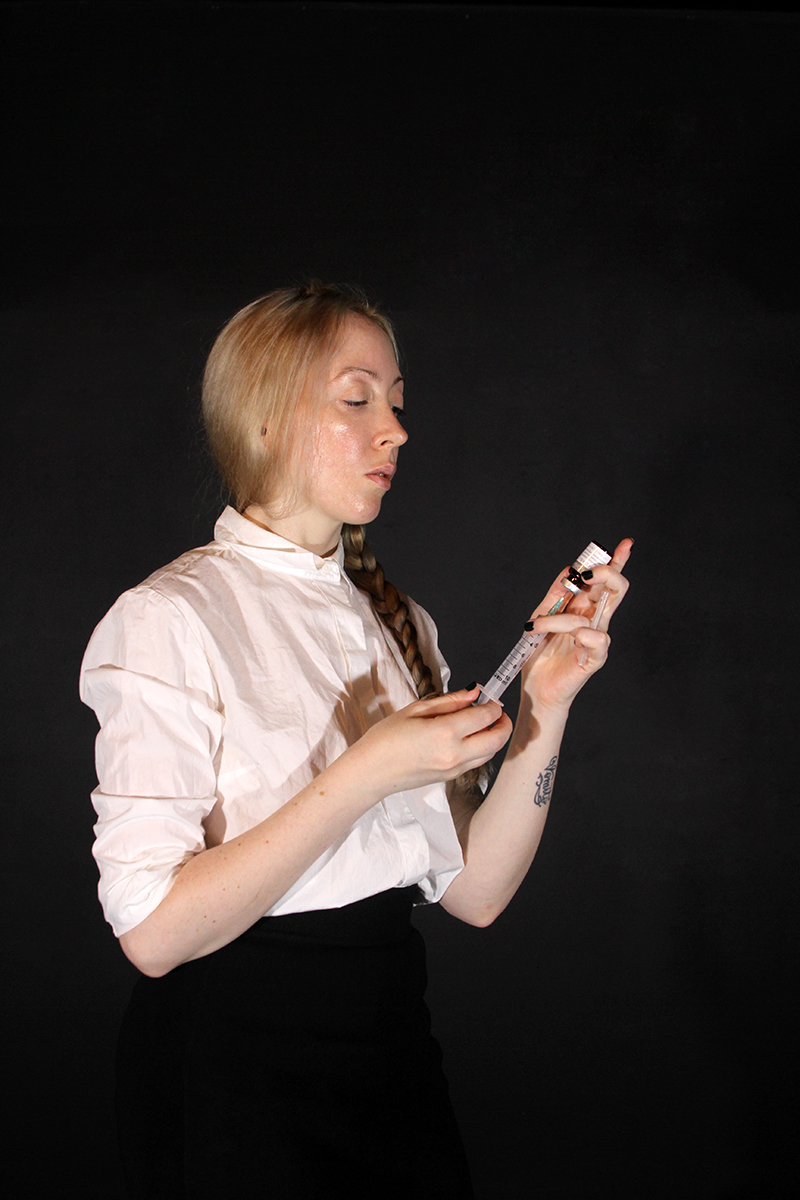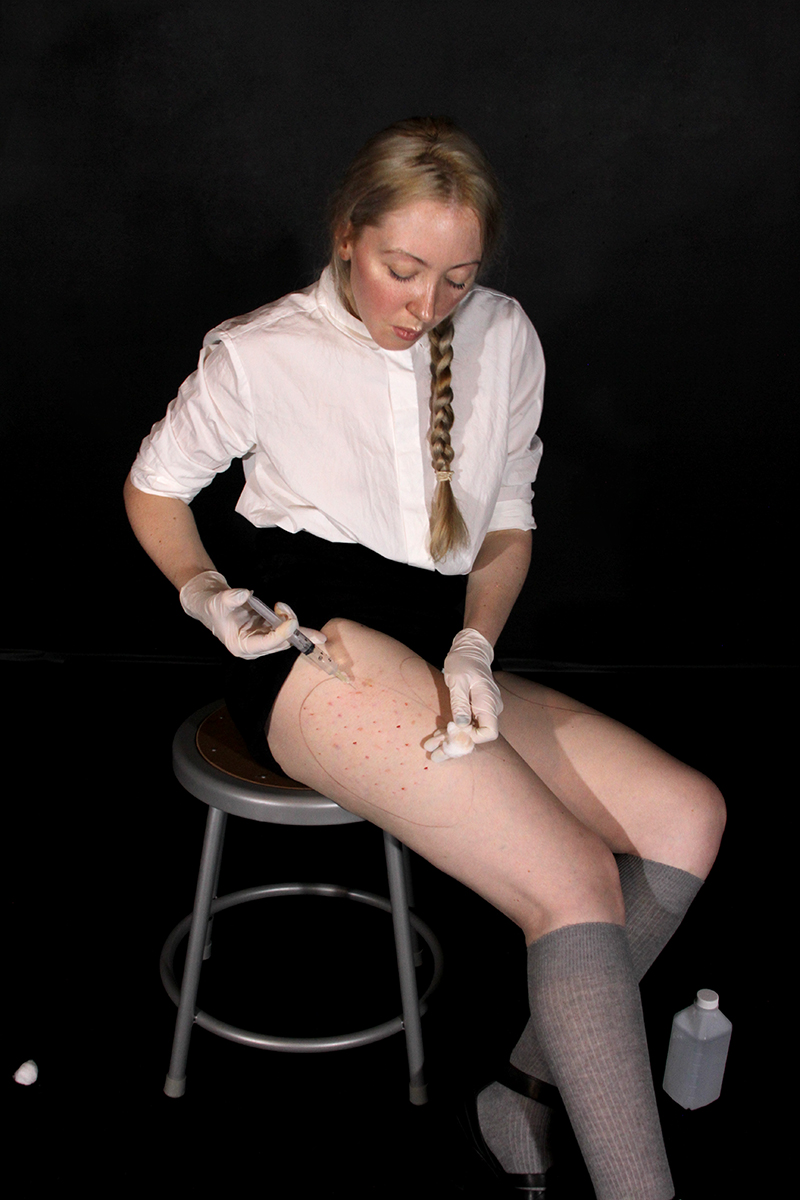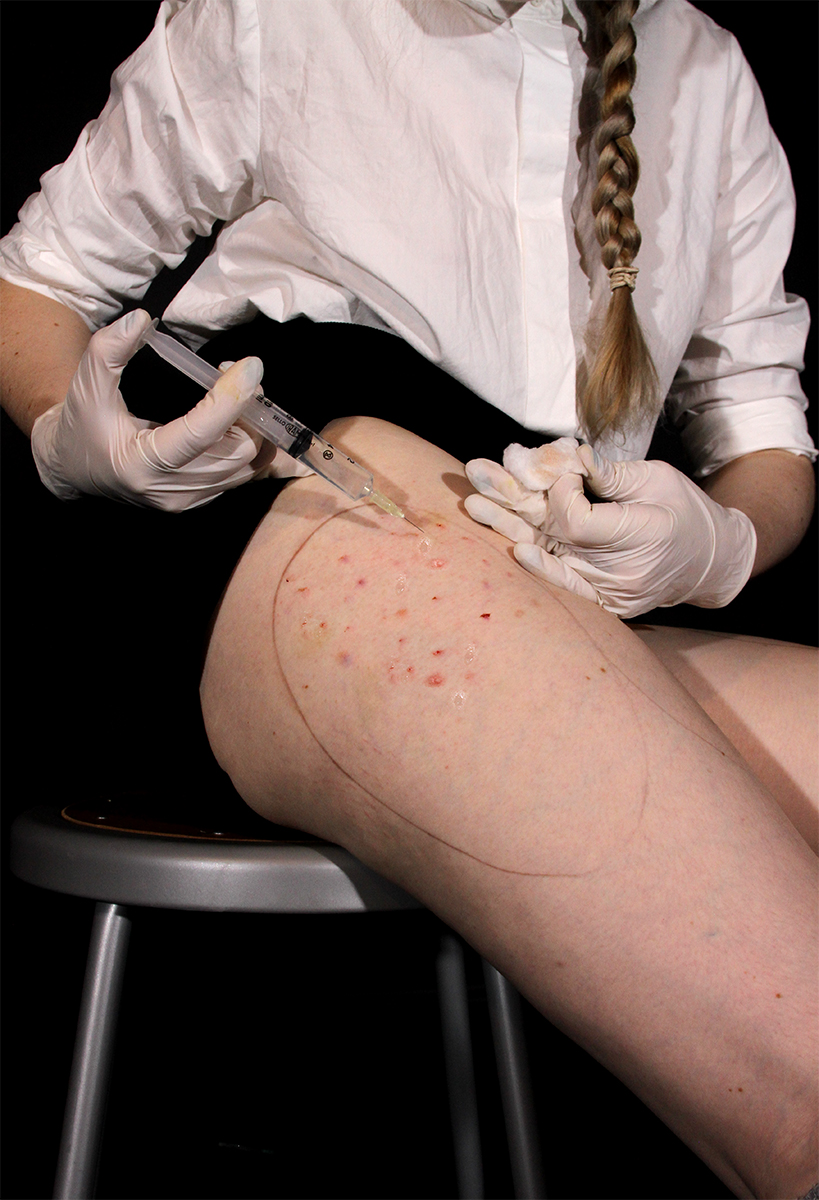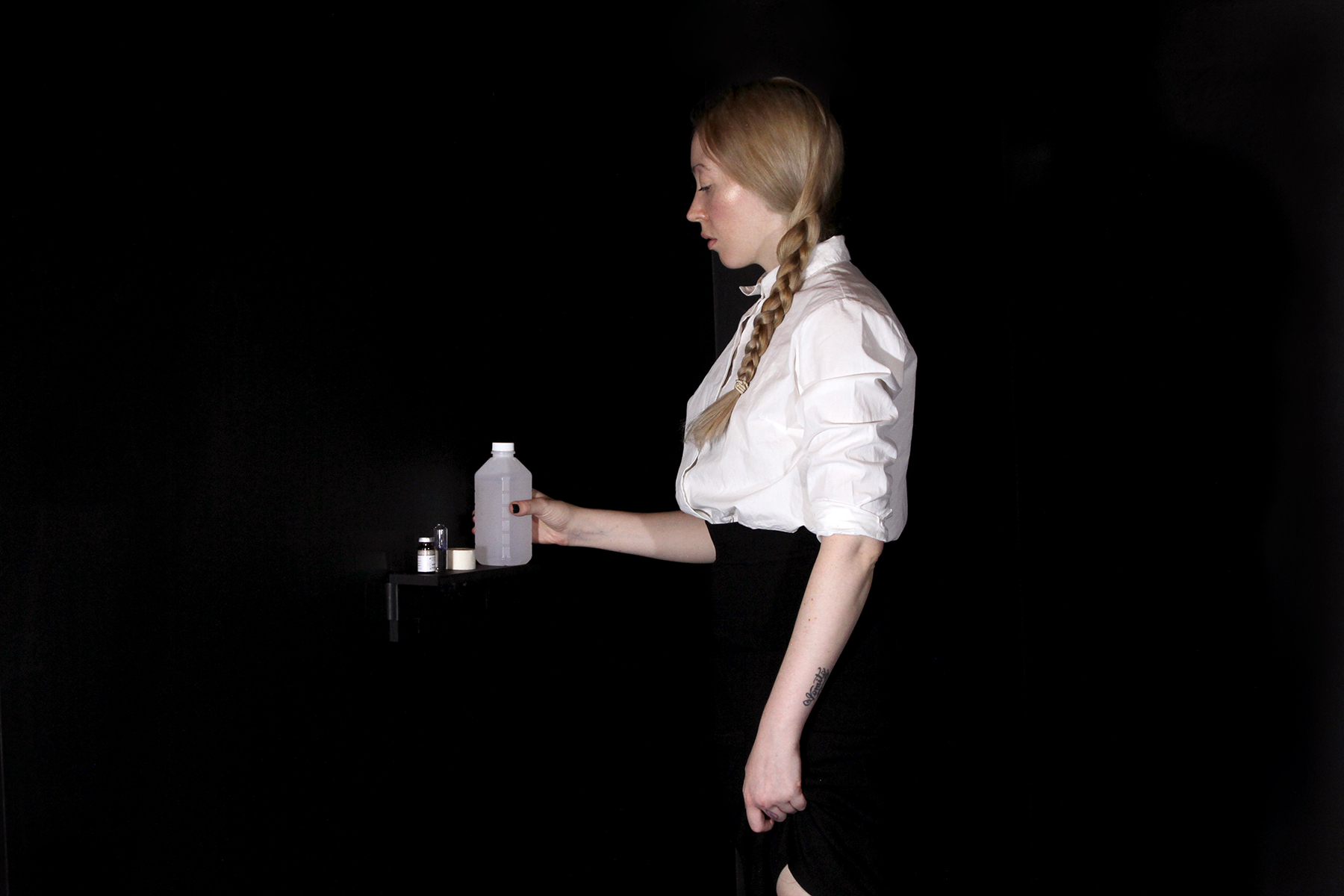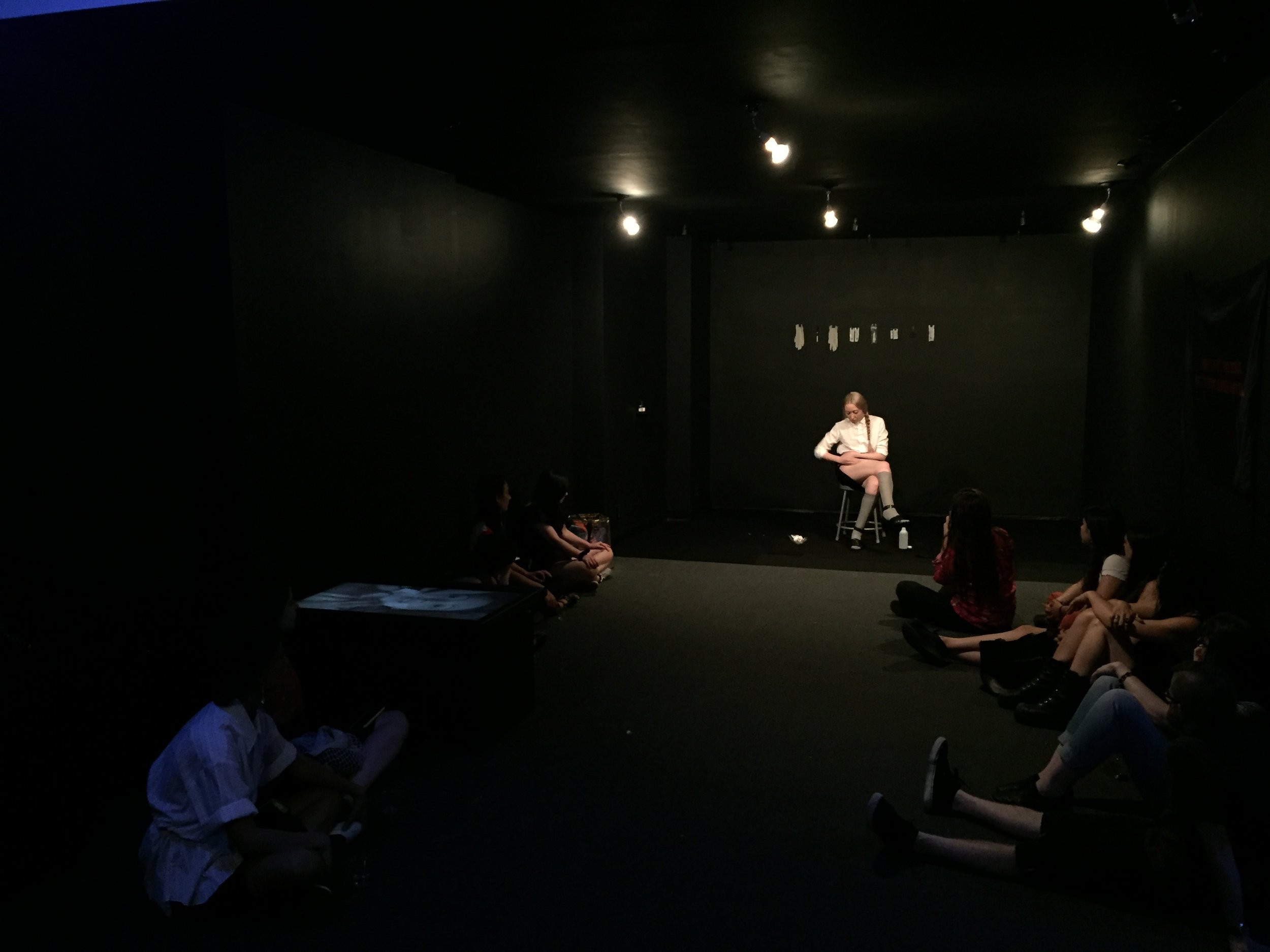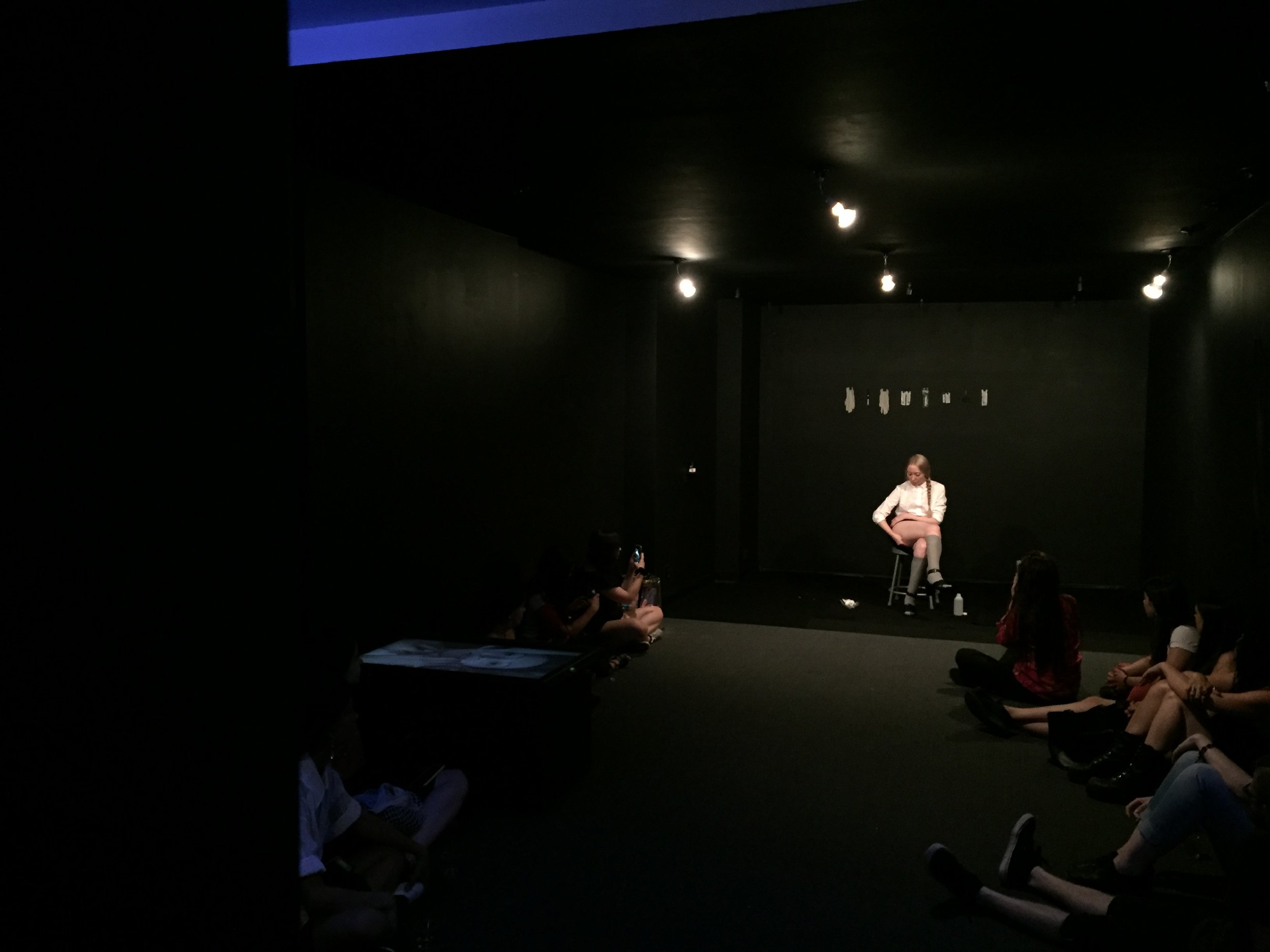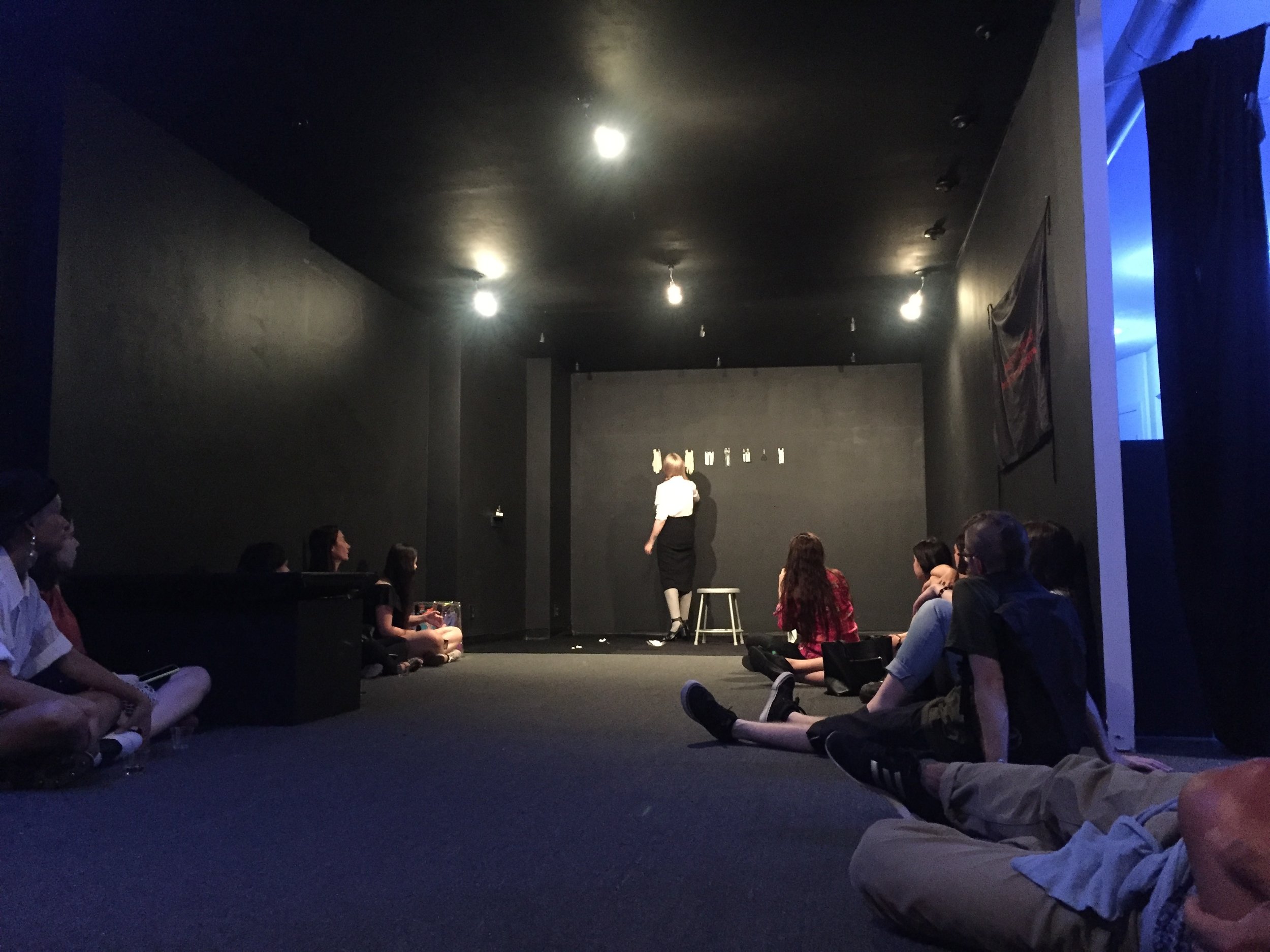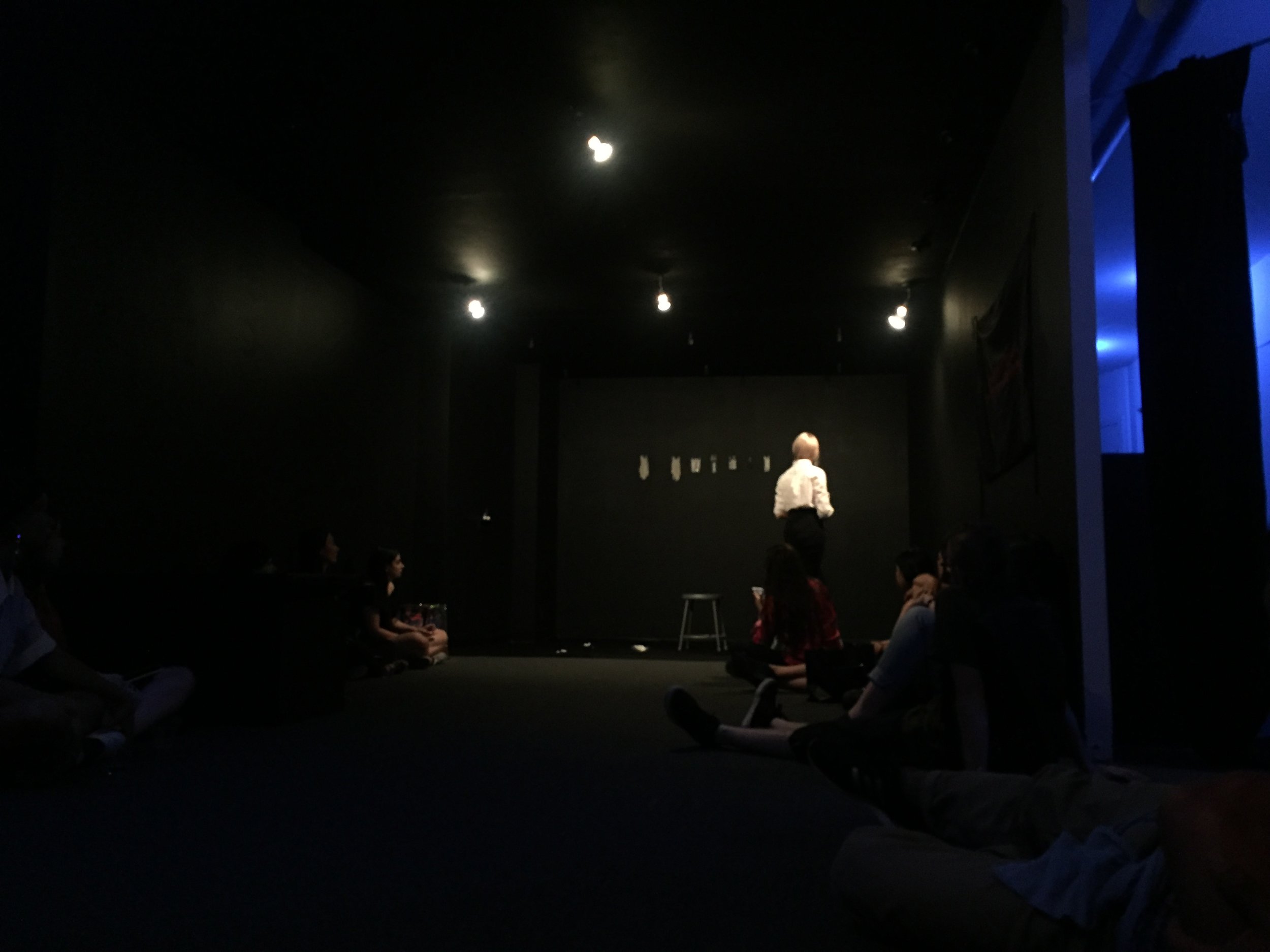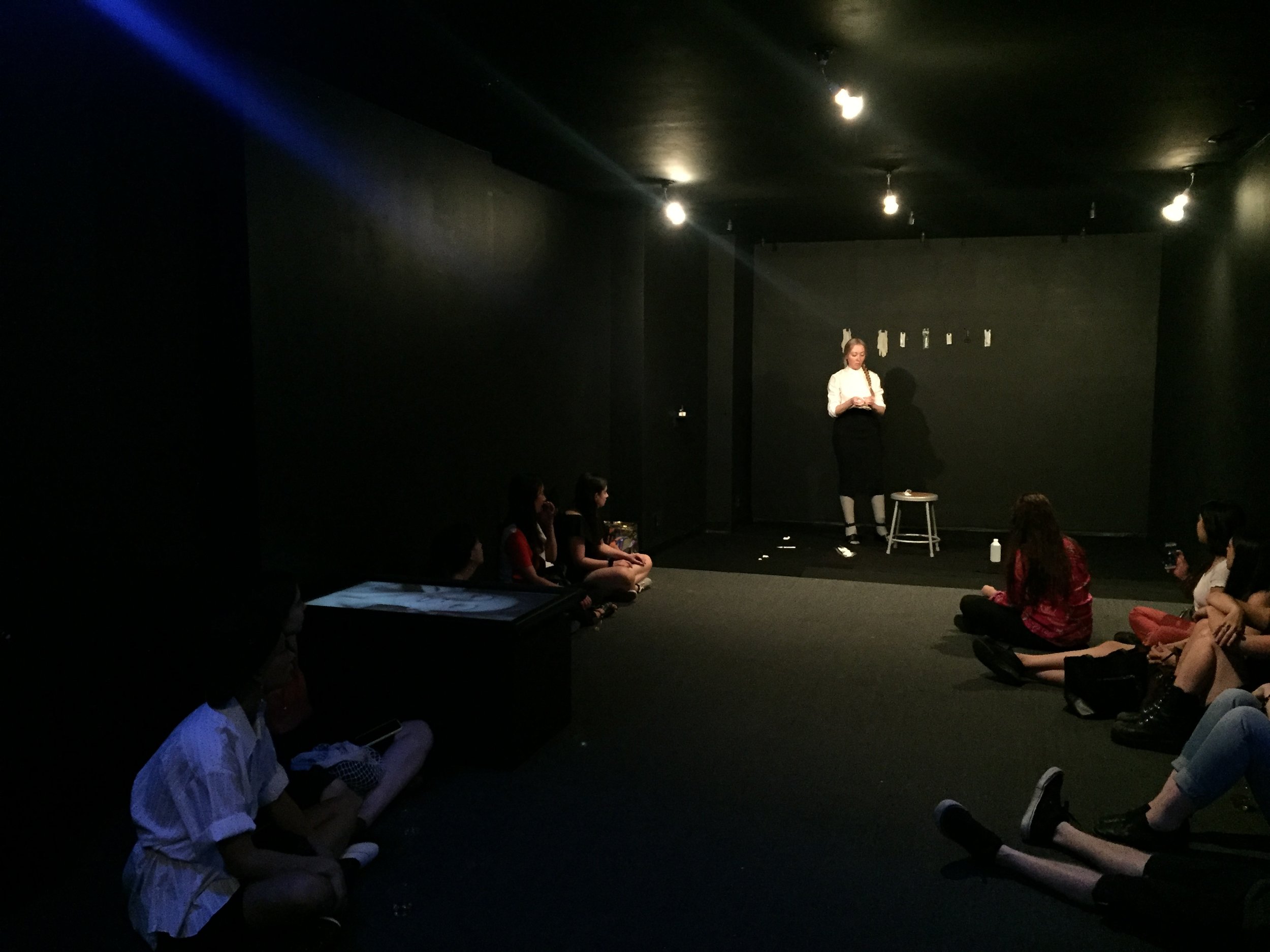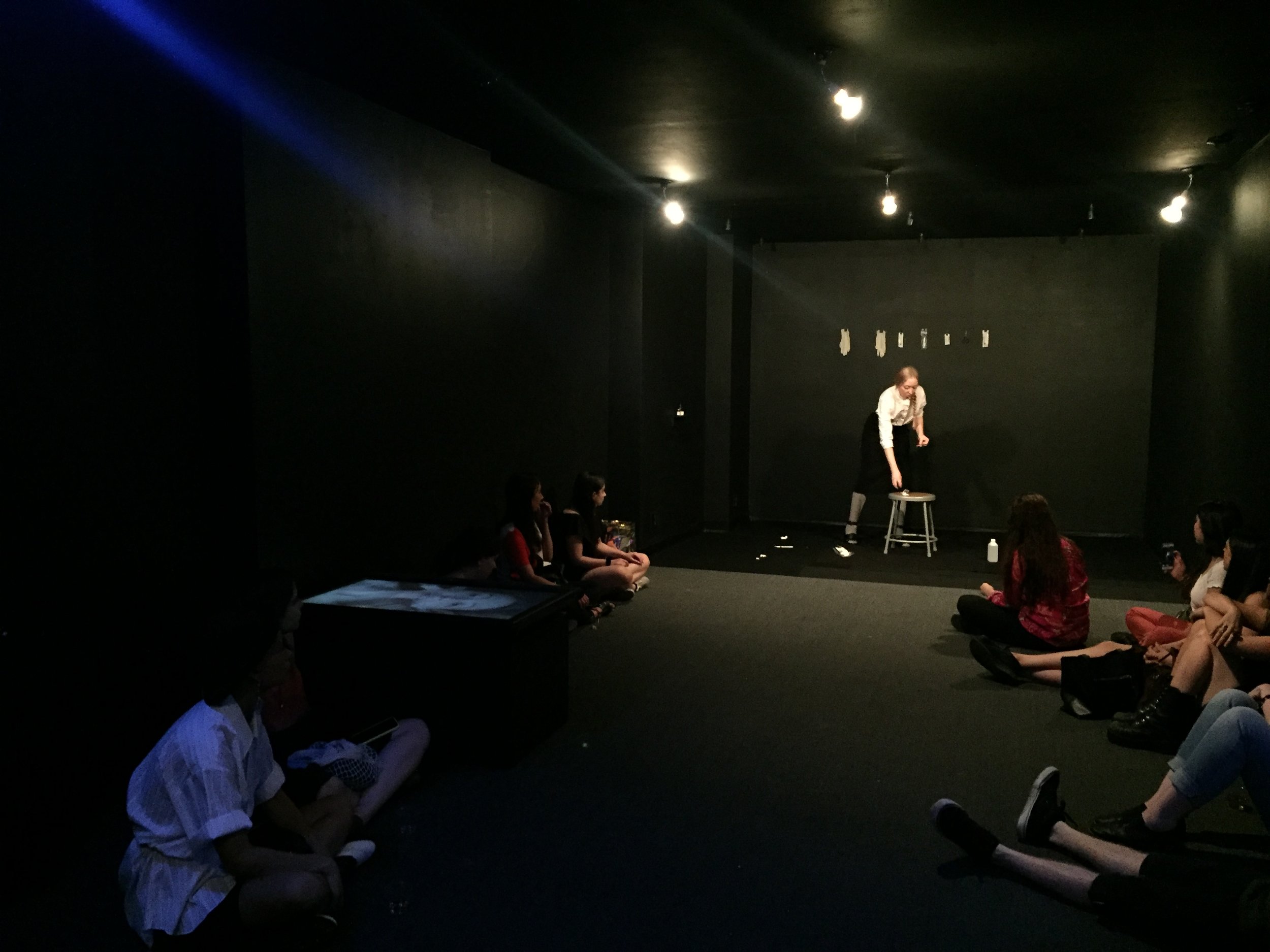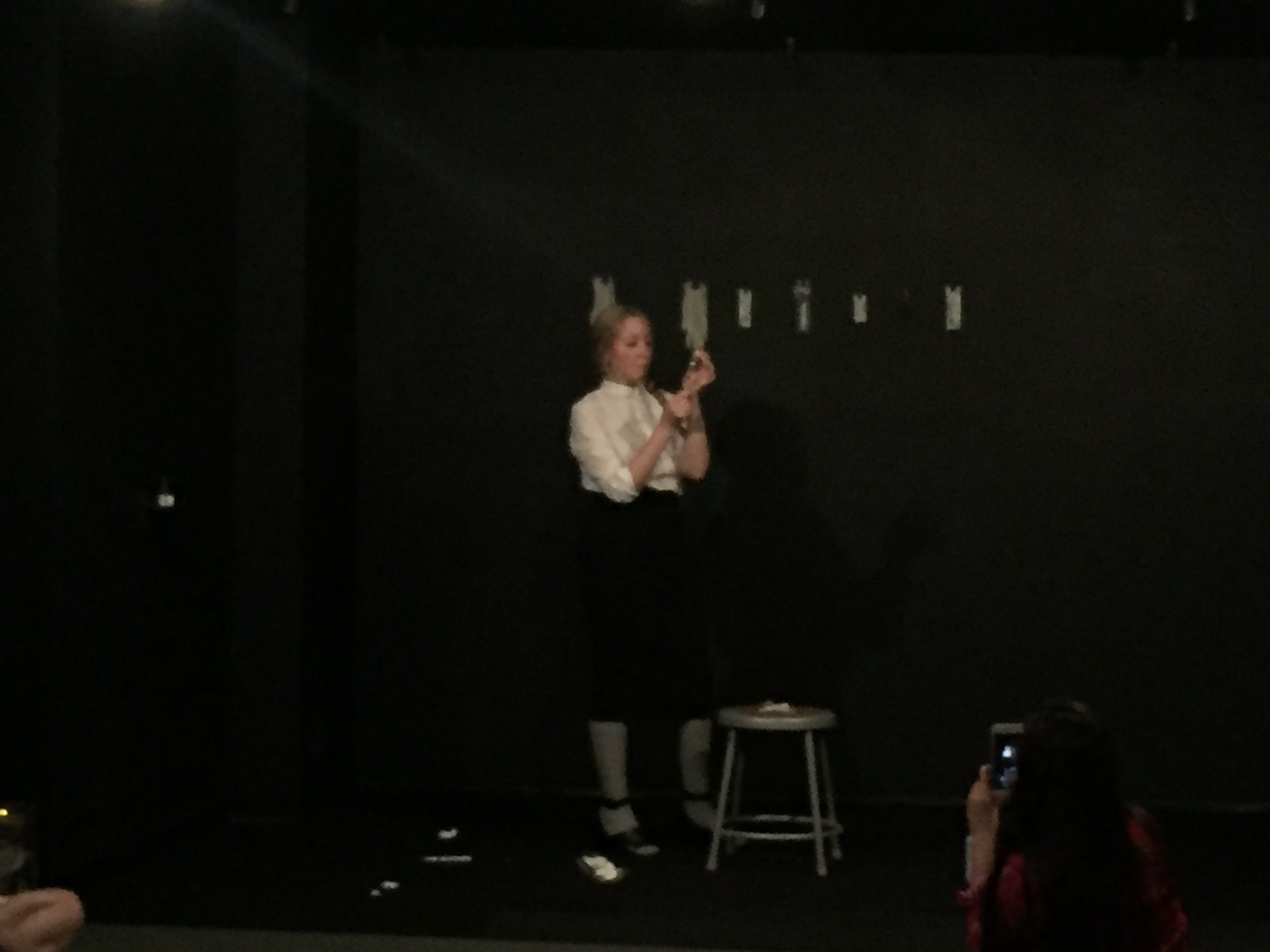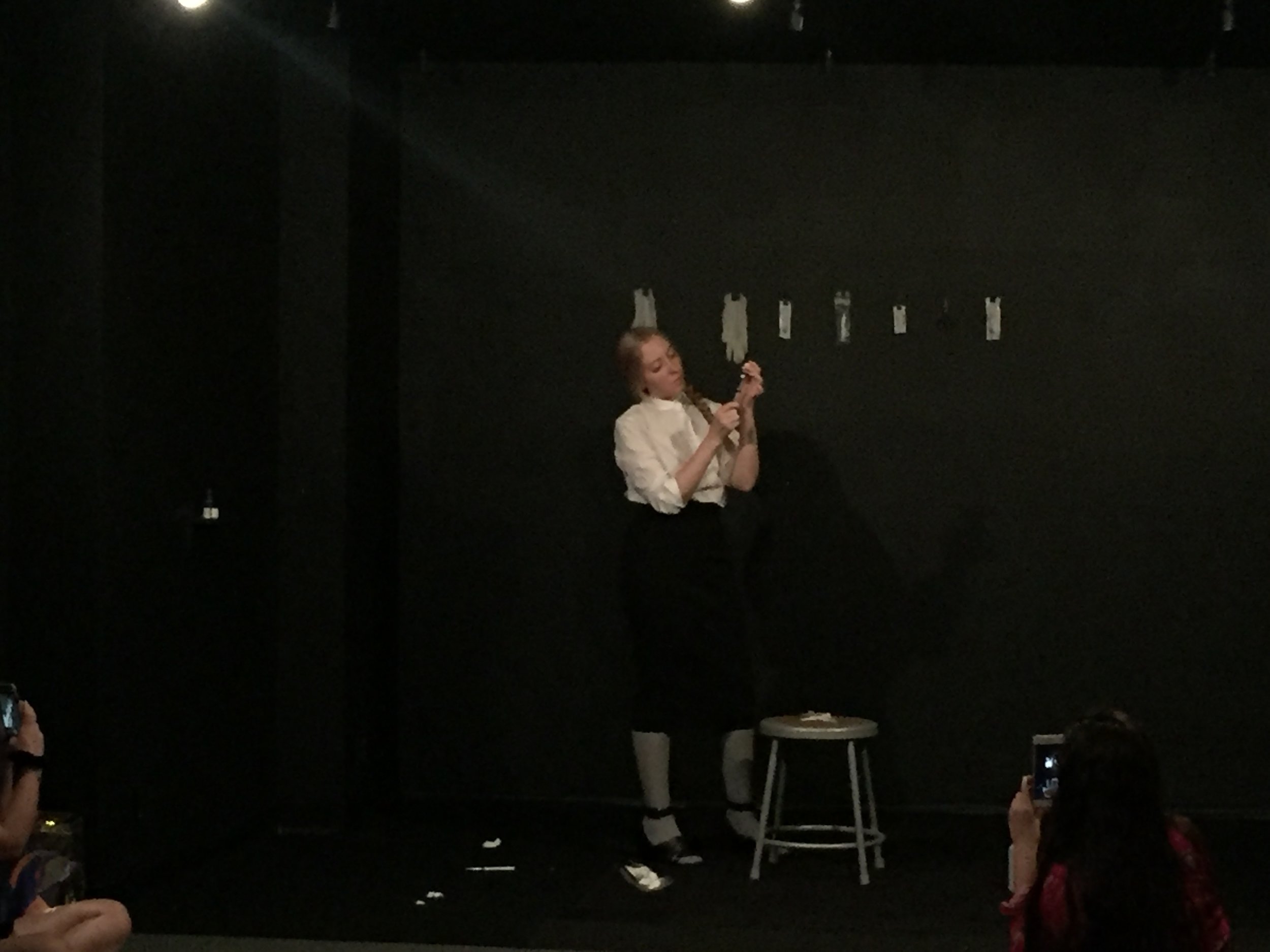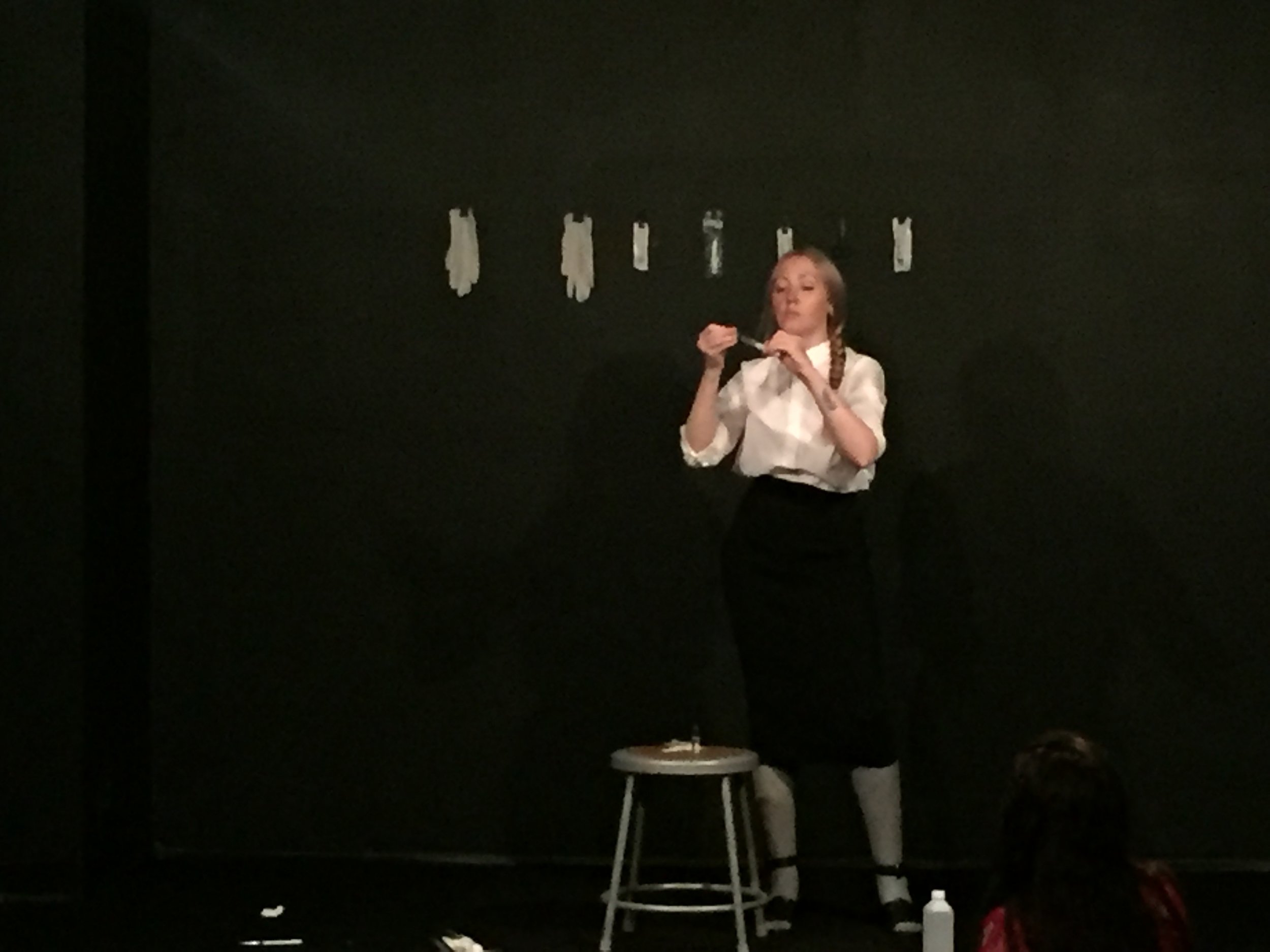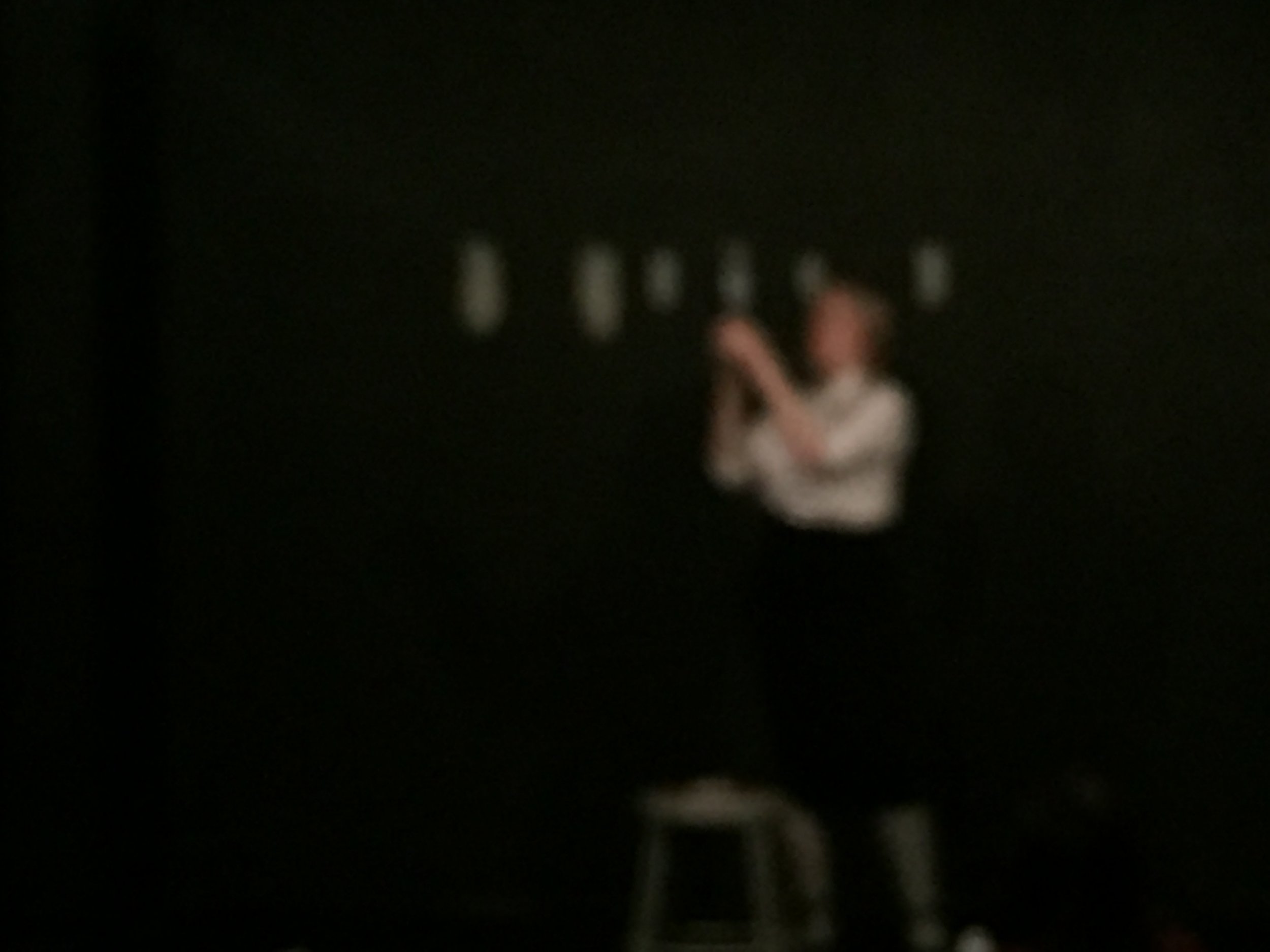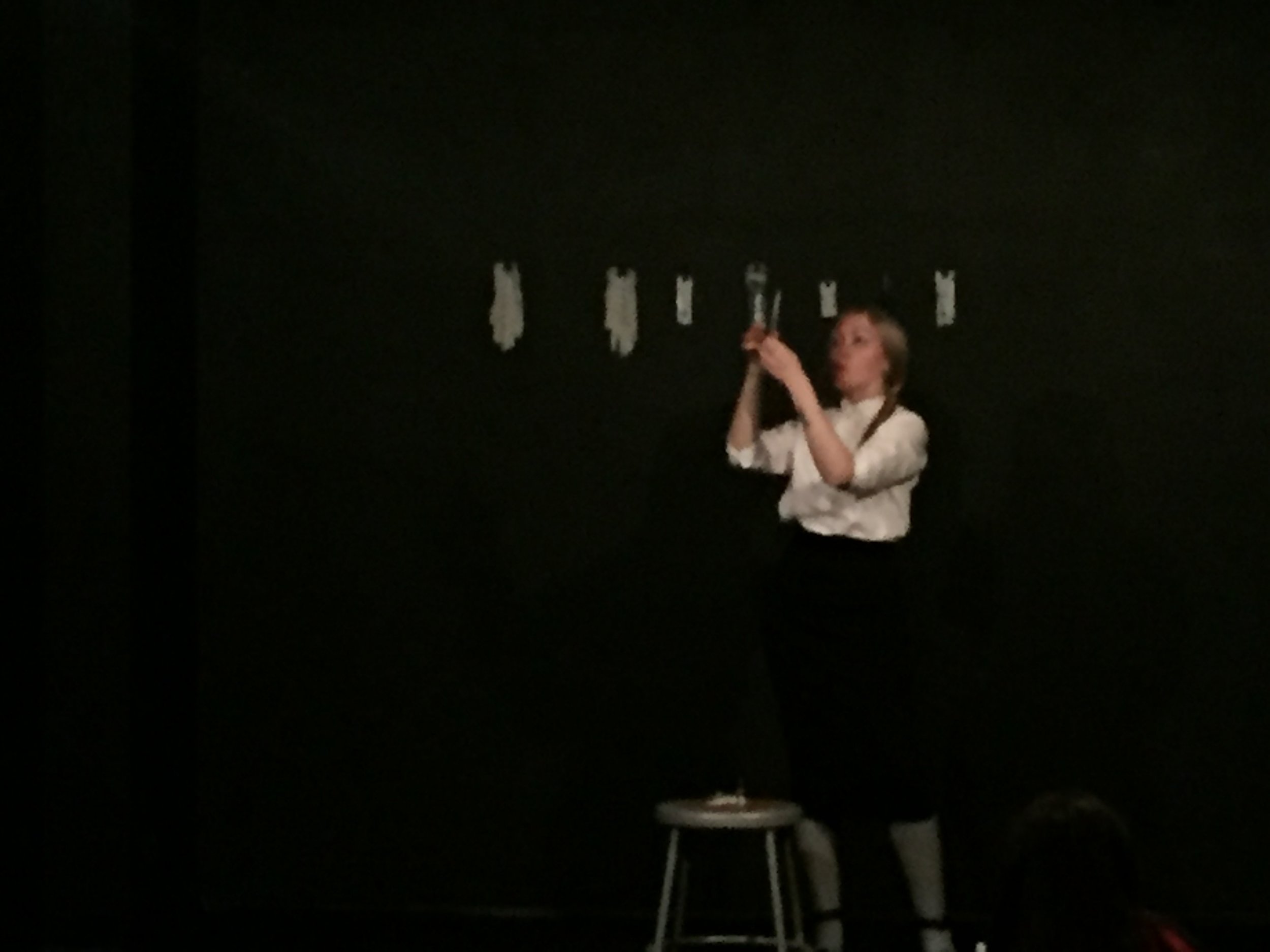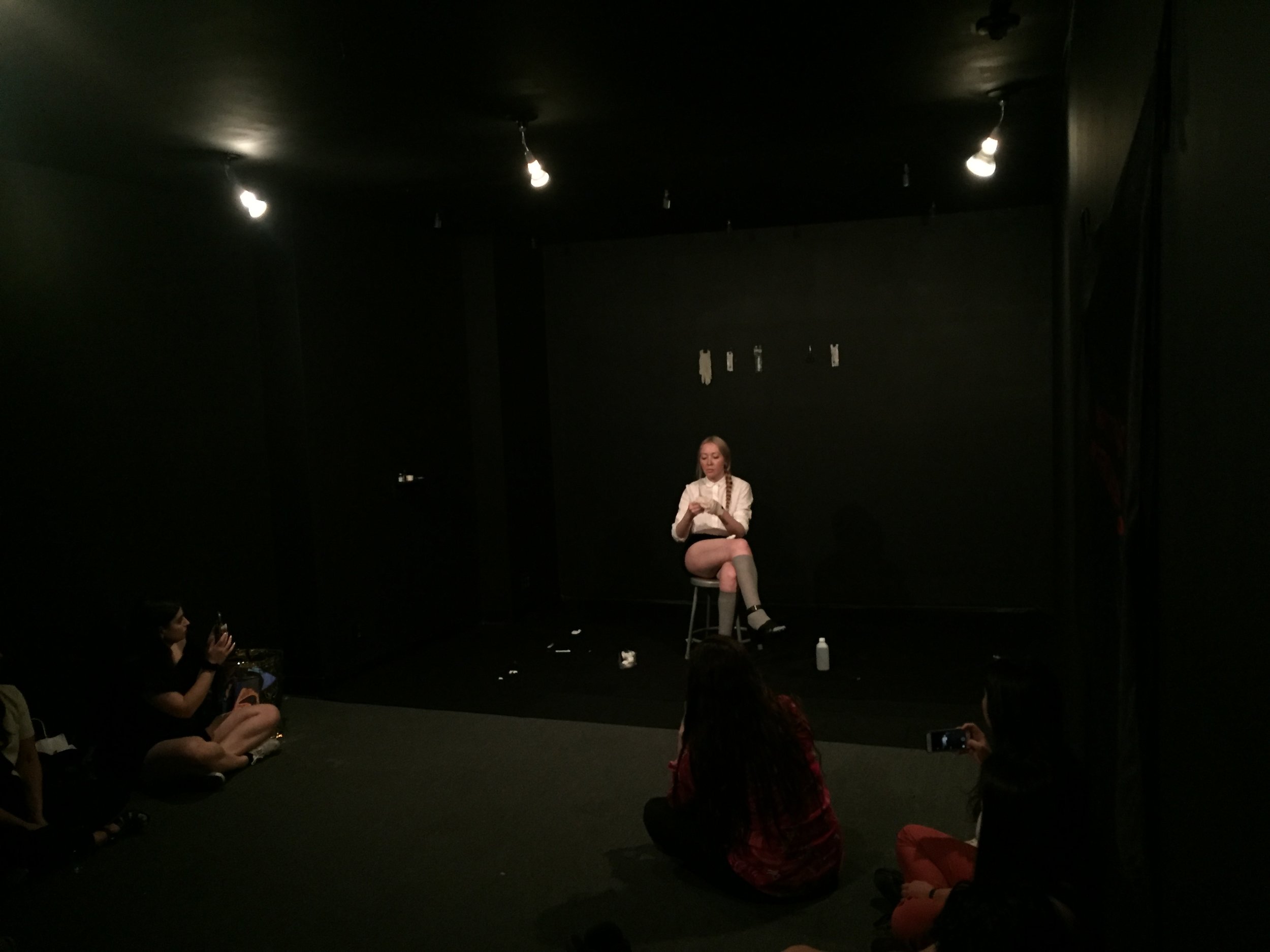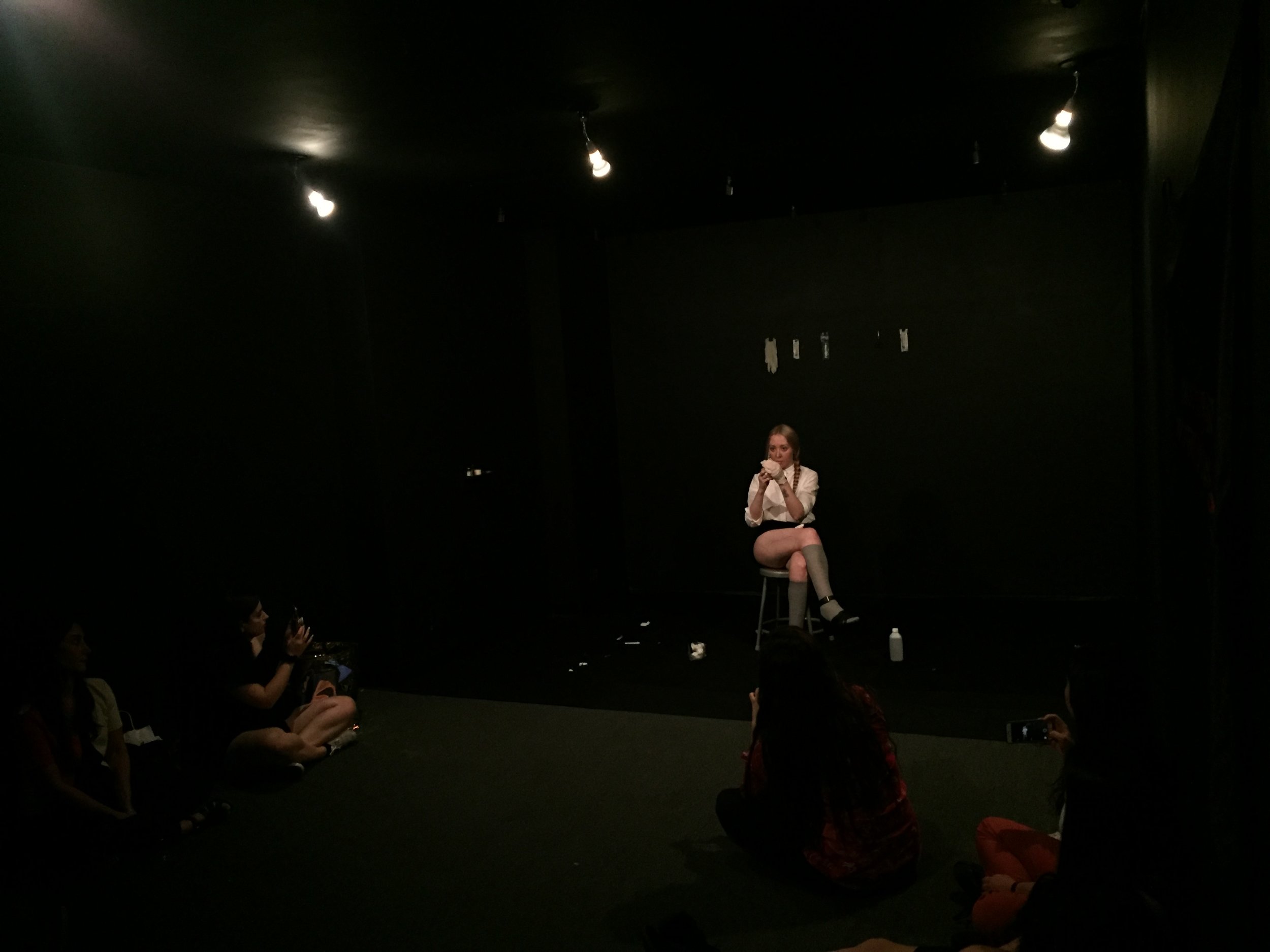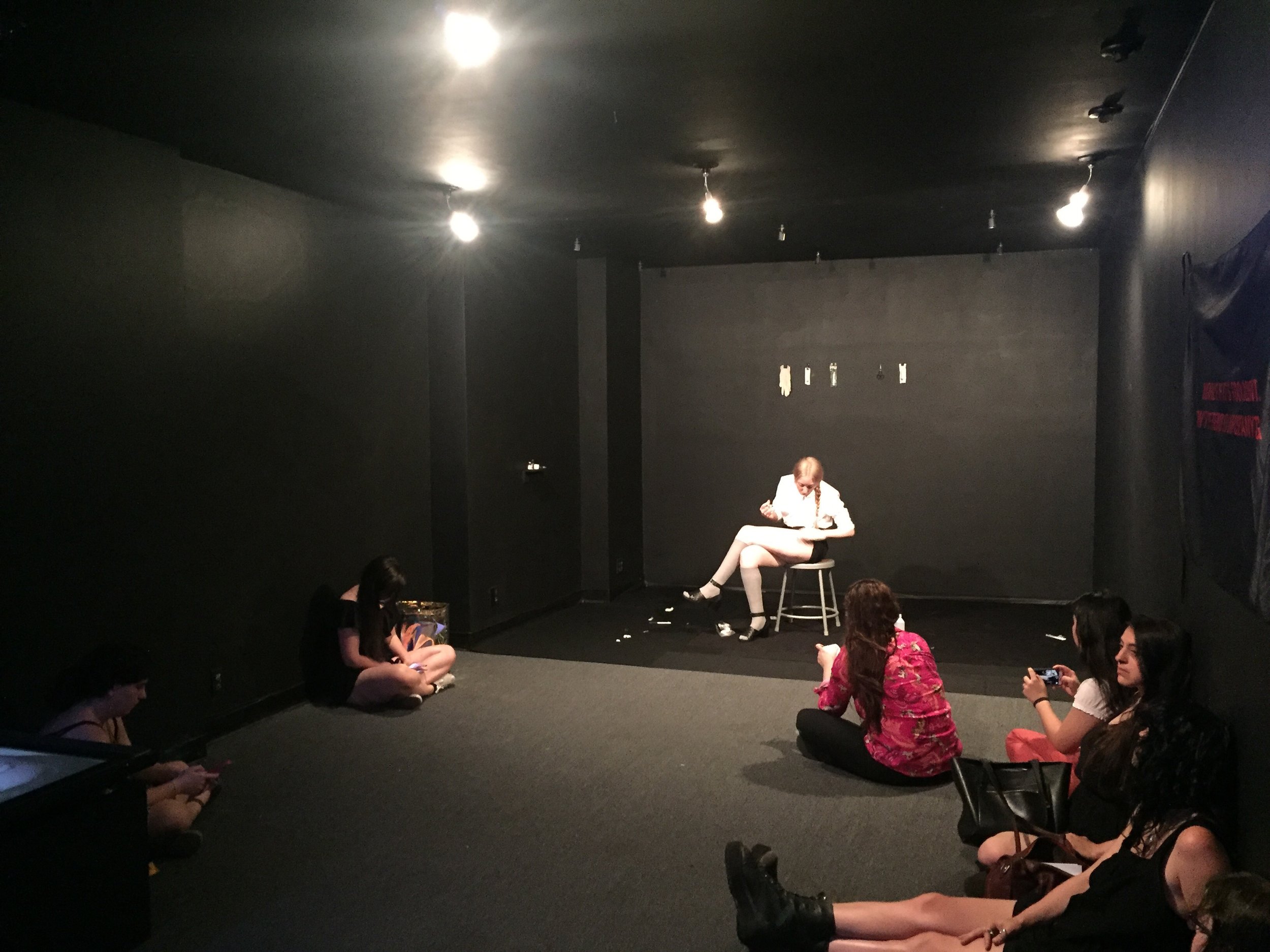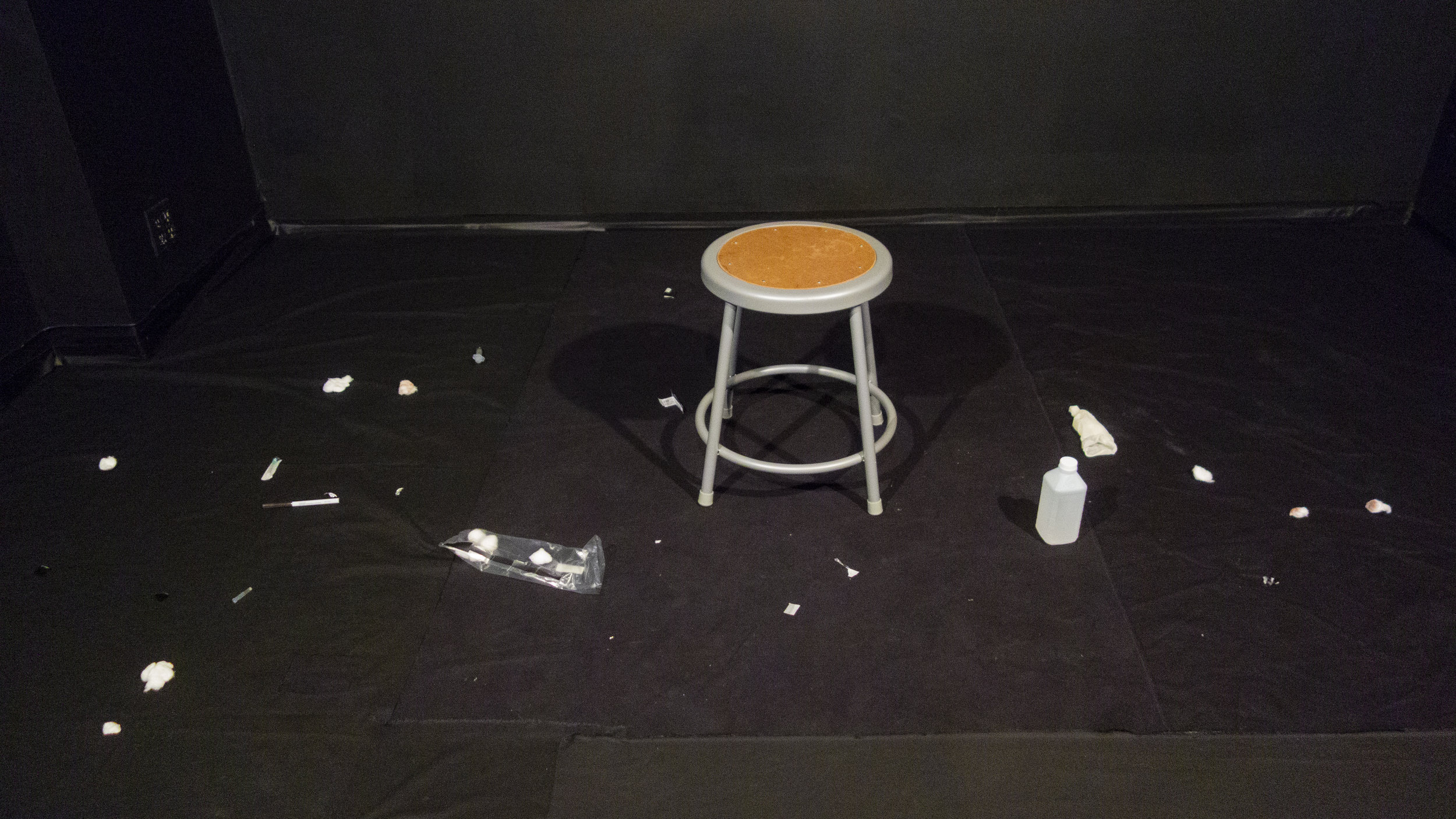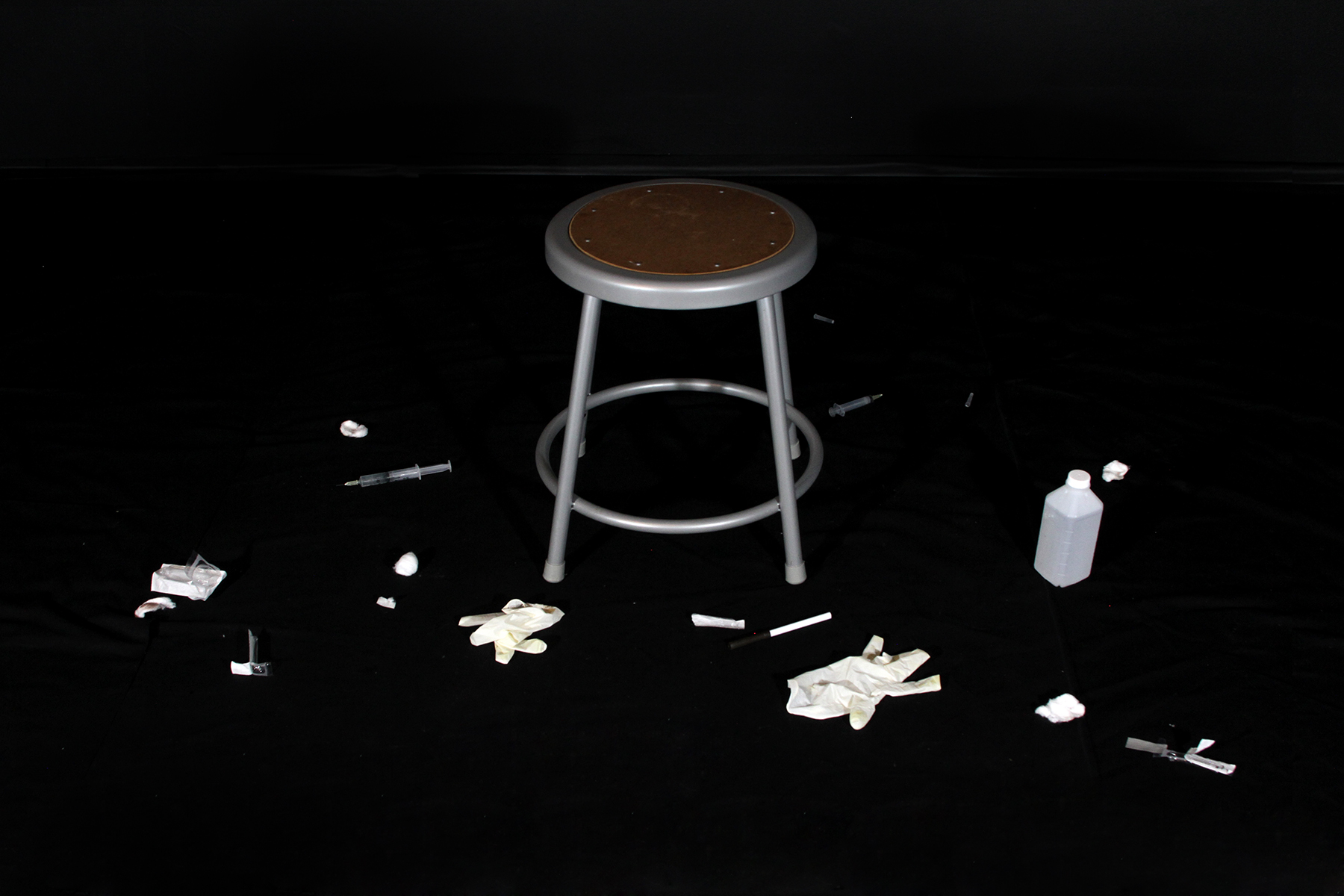Critical Essay by Henrique Menezes, art curator based in Porto Alegre, Brazil
NATACHA VOLIAKOVSKY : performance artist, almost 10,000 followers on Instagram, very bright skin, green eyes and light blond hair.
JULHA FRANZ : performance artist, redheaded and white, based in “Brooklyn, New York” as mentioned on her social networks.
These young artists are part of a program at Hemispheric Institute of Performance and Politics (New York University) and
their Russian/German surnames could be evidence of a European nationality.
Wrong. Natacha was born in Argentina and Julha in Brazil.
Both are connected through a so-called Latin American identity hidden by their digitally created — although real — avatars.
AC Institute will host Layers of Erasure , an in-process exhibition deepening Natacha Voliakovsky’s and Julha Franz’s individual practices, now in collaboration: the bodies’ potential of political speech-making are the genesis of their works. The performances conceived for the show emerge from the concept of phenotype-denying (or an intention towards transformation), in which a race-identified or gendered self is not considered biologically innate or authentic, but is something that could be created through the enactment of behaviors.
Previous shows by Voliakovsky explore a barely-morbid dehumanization of the body, since matter is considered excretion or merchandise, food or fetish — as suggested in the acts of drinking her own blood and offering it to the public ( Something of Mine Returns to Me, 2019 ), performing with a sex worker ( We are all Whores, 2018) , and several cosmetic and sculptural surgeries performed on herself over the years (Procedures, 2015-2019).
Both Natacha and Julha push beyond the question of image, placing their bodies as the vector of a driving involvement in politically committed causes, at the same time as they concentrate on the visible exterior of the body and on its social symbology.
Julha’s presence is a war weapon. Emerging from drag aesthetic , her party-like practice with exaggerated costumes, heavy make-up and pop-music lip-syncing may suggest liberty. Her investigation, however, lies in hidden layers of identity. Within this psychological and corporal research, Julha deals with questions regarding queer culture and decolonized bodies, as well as feminist politics.
Repression means erasure when it punishes and defeats the self.
Disguise means erasure when it denies inner human essence.
Layers of Erasure stands at the same time on what can be hidden and what asks for actions whose effects are permanent, non-hierarchically blurring the perspectives of overexposure and self-obsession. At AC Institute, Julha Franz reveals her ephemeral female-male process of transformation in a voyeuristic pact with the public. Natacha Voliakovsky performs a live non-surgical cosmetic treatment to permanently extinguish her physical “imperfections”. The artists declare: “ We are interested in reflecting on the place of women in society, on the obligation of beauty; we both bring the possibility of modifying ‘the sacred body’ to the table but from different perspectives ”. These approaches to performance and politics speak of an intrinsic resistance, of an emancipatory state of what it means to be a woman-latin-queer artist in today’s wavering world. Erasing can be an active and empowering action.
Natacha Voliakovsky (Buenos Aires, 1988) is a visual and performance artist.
She’s been selected to participate in prestigious educational programs around the world, including EMERGENYC at the Hemispheric Institute for Performance and Politics (NYU, 2019) and the intensive workshop in performance art at Venice International Performance Art Week (2018). She’s also taken part of the contemporary art residency at Überbau Haus, Brazil (2017) and Sur Polar residency, Antarctica (2014), among others.
The work of Natacha Voliakovsky revolves around the concept of culture as a humanizing system, focuses on the analysis of social behavior and questions the boundaries of established rules. She is interested in deconstructing the social body in order to raise awareness on issues regarding gender identity, body sovereignty and self-perception using site-specific actions.
Her solo shows include Algo de mí vuelve a mí, El cuerpo del escándalo, Pecho argentino, Supervivencia, Žena ve válce, Es una pregunta abierta, Ejercicio para la emergencia, Interferencia, lo opuesto a un momento fugaz, among others. She has been performing in different cities around the world for the last 10 years. Her works have been featured in group exhibitions in Argentina, Uruguay, Colombia, the US, Italy, Czech Republic, India, Turkey and Ukraine.
She’s created Voliakovsky Performance Method, a series of training techniques for performance art. The artist’s aim is to share the techniques she herself uses to prepare body and mind before carrying out a performance piece.
As of 2019, she’s developing Argentina Performance Art, the first research platform on performance art in Argentina.
Natacha lives and works in Buenos Aires, Argentina.
Website natachavoliakovsky.ru
Julha Franz
Coming from a place sexual and gender liberation, Julha Franz pushes boundaries with her own body. Through the language of performance art, she creates new forms of imposed body and social identities. Her current field of research is body transformation, especially through makeup. Usually, makeup is used to reinforce aesthetic patterns. Julha proposes the opposite: to break stereotype by using makeup as a creative tool for new queer and marginal aesthetic.
She has already realized Artistic Residences in the cities of Venice, Italy, 2017 ; Buenos Aires, Argentina, 2015 ; and also in Buenos Aires, 2014, at La Paternal Espacio Proyecto, which originated her first solo exhibition, called "MAL DEL OJO". She participated in collective exhibitions, mainly art performance festivals, such as VERBO - Galeria Vermelho, São Paulo, in which she participated in two consecutive editions in 2017 and 2018, respectively; and she was nominated for the French Alliance Contemporary Art Award in 2018.
Instagram: @julhafranz



